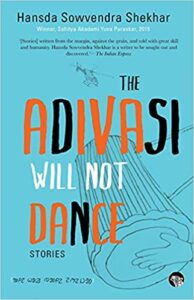Why I Picked This Book
“Rage of the River – The untold story of Kedarnath Disaster” presents a firsthand report about the 2013 Kedarnath disaster that shook the Uttarakhand mountains. I picked this book because I wanted more than just headlines; I wanted a grounded, fact-based account of the 2013 Uttarakhand floods. Hridayesh Joshi, a seasoned journalist with experience at NDTV and India Today, brings credibility, compassion, and meticulous reporting to the narrative.
What the Book Covers
The book unfolds in three broad layers:
- What happened on the fateful day – the sequence of events, the sudden surge of water, and the chaos that engulfed Kedarnath.
- The government’s response – a chilling examination of how administrative apathy and poor coordination turned a natural calamity into a humanitarian crisis.
- The causes behind the disaster – a critical look at reckless development in the fragile Himalayas and the environmental negligence that set the stage for such destruction.
A Journalist’s Eye for Detail
What sets Rage of the River apart is Joshi’s journalistic rigor. He reconstructs events through interviews with shopkeepers, villagers, pilgrims, stranded tourists, officials, and rescue workers. This brings authenticity and immediacy to the narrative—you can almost feel the panic, desperation, and grief of those days.
While the government put the death toll at around 5,000, locals and relief workers estimated it to be closer to 12,000–15,000. This staggering difference highlights not only the scale of the tragedy but also the attempt to underplay it.
Man-Made Disaster in the Himalayas
Perhaps the most important takeaway from this book is that the Kedarnath tragedy was not a freak act of nature alone—it was largely man-made. Joshi points to the reckless construction of hydropower projects, roads, and hotels in the ecologically fragile Himalayan belt, all in the name of “development.” He warns that unless we change course, more such catastrophic disasters are inevitable.
Style and Accessibility
The book is well-structured and written in simple, clear English, making it accessible to a wide readership. While the heavy use of facts and figures may feel overwhelming at times, it reflects the depth of research and adds weight to Joshi’s arguments. Importantly, it never loses the human element, keeping the stories of survivors and victims at the heart of the narrative.
Final Verdict
Rage of the River is not just a book about a disaster—it is a wake-up call. It forces us to confront uncomfortable questions about our model of development and its consequences on fragile ecosystems. For anyone interested in understanding the enormity of the Kedarnath disaster, the human suffering it caused, and the urgent need for sustainable development, this is an essential read.
If you care about environmental issues, climate change, or simply want to understand how governance failures amplify human tragedy, this book deserves a place on your shelf.


